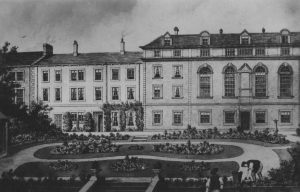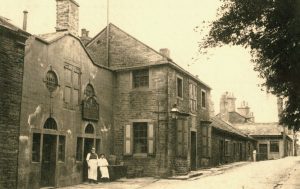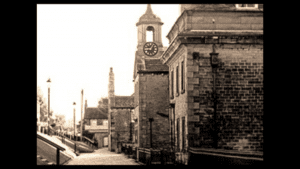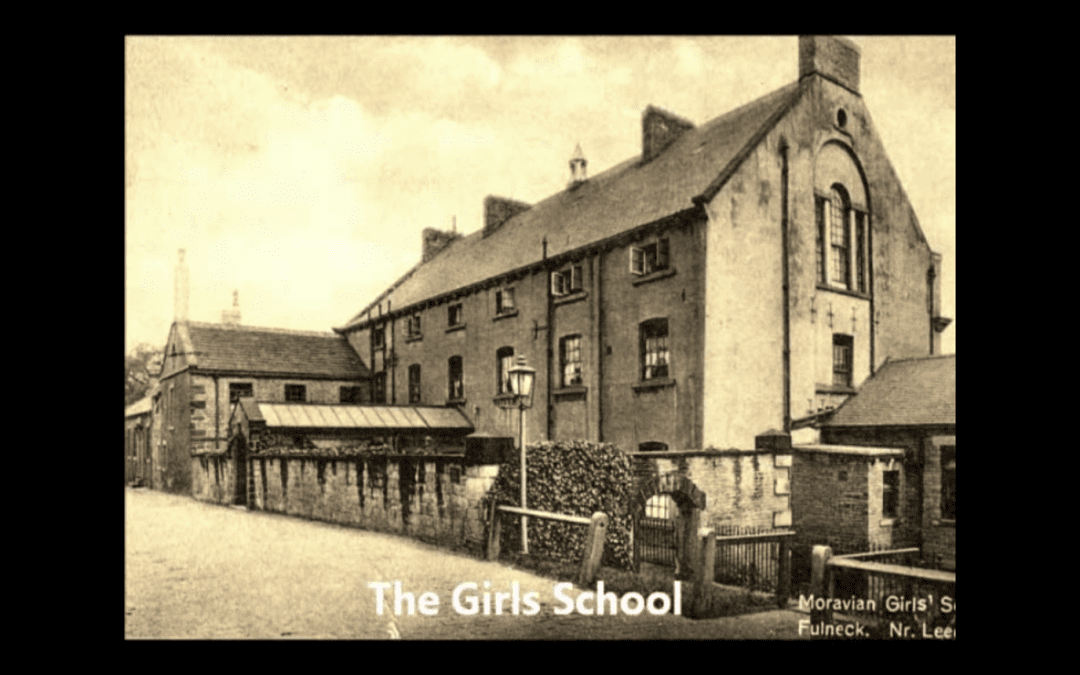Strong willed and intelligent, Elizabeth really wanted to be stretched and challenged to learn. Her brother went to university and that would have really suited her; being a female, that was not an option.
Elizabeth was determined and her two years at Fulneck School provided the foundation on which built. Throughout her life she showed a real belief in self-development and lifelong learning. Even into her seventies, she was delivering talks about poetry that were, according to the local papers, well received; this was when she wasn’t fighting for the vote and campaigning with the suffragettes. Being denied a university education was a frustration but didn’t hold her back, in fact it fired her up to fight for such opportunities for others.
After her formal education she worked for a few years as a governess. This will have provided her with clear evidence of the difference between the education provided for boys and girls. Most middle class mothers were only interested in girls being prepared for a good marriage, preferably to a young man earning or inheriting a large sum of money. Think Jane Austin.
For two years, Elizabeth was a border at Fulneck School. This is within the Fulneck Moravian settlement built in the 1740s; it is near Pudsey, Leeds. The school was well established by the time Elizabeth arrived and, as today, it worked with the Moravian principles set out by Jan Comenius, emphasising the importance of a child-centred education. These principles were taken forward by Elizabeth as she moved on to work as a headmistress and to influence teacher training at a national level.
Fulneck school borders had to rise at 6.00am with lessons following an early breakfast. She would have covered a broad range of subjects, including languages, history and geography. As the girls’ school was below the church they would at times hear the beautiful organ clearly. Today services are still accompanied by the same organ. Boys and girls would regularly attend church services, as they frequently do today.
In many ways, Elizabeth would recognise Fulneck as it is has remained largely unchanged.
In the summer the girls would walk along the terrace, take picnics in the woods of Tong Valley and help grow vegetables for the school kitchen.

Fulneck terrace
Along with the bakeries, the shop was a vital source of goods for those living in the settlement. For the school borders, it would supply exercise books and paper for letters home. This is where Elizabeth will have started her lifelong work of writing letters. Today it is a café that provides welcome snacks for locals, pupils and teachers.

Shop at Fulneck
While at school Elizabeth will have met the people who lived and worked in the settlement. Like Roe Green, religion was at the heart of this settlement where people worked hard to earn a living. She will have left Fulneck with a good education and clear principles that stayed with her, even though her life would increasingly lead her away from any form of religion.
A Fulneck education in various ways will have added to the development of this feisty feminist. From there she returned home to continue her education on her own, in preparation for the role of governess. Elizabeth had from a young age been determined that she would lead an independent life, finding a role that enabled her to live and work as she chose. The opportunities at this time for women were narrow but she carved out a life that allowed her to improve chances for future generations.
As she grew up, Elizabeth would have seen many women who lived their lives dominated by men. She was determined this was not for her.

Fulneck Moravian Church. Each Advent the Moravian Star shines out from the Bell Tower, which also houses the bell and the clock . Elizabeth will have learned to make the Moravian Star and Christingles while at school.
Thanks to the Fulneck Museum and Bruce Newton for the photographs included in this post.
As always, I welcome your comments and questions. Thank you for reading this and I hope you will enjoy my next post; before then I am off to Congleton. Elizabeth lived for much of her adult life in Congleton and to mark her achievements they are unveiling a statue in the town centre.


Your written word is not only knowledgable and interesting, it is also clear and concise making reading easy and pleasurable. I look forward to the next blog.